On the morning of September 10, the 12th session of the Jingde Forum of the Department of Electrical Engineering and Applied Electronics (EEA) at Tsinghua University was successfully held in Lecture Hall 217, Zone 3 of the West Main Building. The forum featured a keynote report by Daniel Kammen, Member of the U.S. National Academy of Sciences, Fellow of the American Academy of Arts and Sciences, and Bloomberg Distinguished Professor at Johns Hopkins University, entitled “Innovation for the Just and Inclusive Energy Transition.” Li Ruomei, Chair of the Energy Efficiency Working Group of the World Federation of Engineering Organizations and former Secretary-General of the Chinese Society for Electrical Engineering; Kang Chongqing, Dean of the Department of Electrical Engineering, President of the Tsinghua Energy Internet Innovation Institute, and President of the Tsinghua Sichuan Energy Internet Research Institute; Professor Sun Kai, Deputy Dean of the Department; Professor Hu Zechun; Dai Jing, Associate Director of the Energy Governance Research Center of the Tsinghua Energy Internet Innovation Institute; Associate Professor Zhang Ning; and more than 80 faculty members and students from both inside and outside the university attended the event. The forum was hosted by Professor Sun Kai.
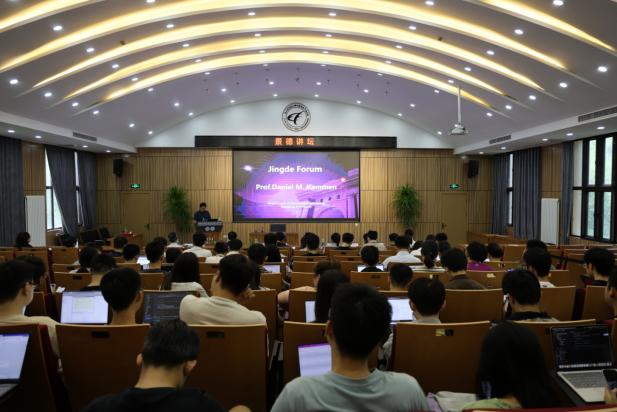
At the Forum
Professor Sun Kai introduced the background and purpose of the Jingde Forum and highlighted Professor Daniel Kammen’s major academic contributions. Subsequently, Professor Kang Chongqing, on behalf of EEA, presented Professor Kammen with a commemorative certificate and plaque for the Jingde Forum.
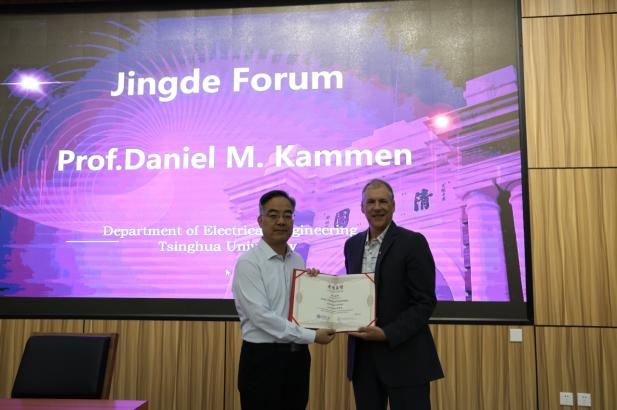
Kang Chongqing Presenting the Commemorative Certificate to Daniel Kammen
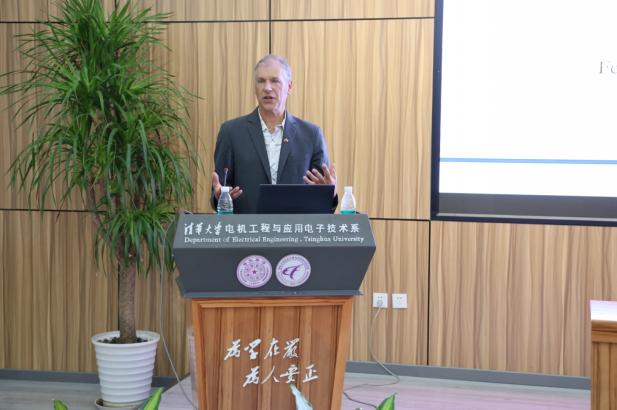
Daniel Kammen Delivering His Lecture
Professor Daniel Kammen delivered his report titled “Innovation for the Just and Inclusive Energy Transition.” He shared his insights on coordinating climate science, technology, and policy, exploring pathways to achieve the 1.5°C climate goal while promoting social and environmental equity. He emphasized that current developments in climate science, technology, and policy remain imbalanced. Although the 1.5°C temperature goal has gained broad academic consensus and relevant technologies are advancing rapidly, coordinated action at multiple levels is still required to ensure the ultimate achievement of climate change objectives. During the lecture, he introduced modeling tools and policy frameworks aligned with the temperature-control target while addressing social and environmental considerations, elaborating on the critical importance of scientific decision-making from technological, policy, and equity perspectives.
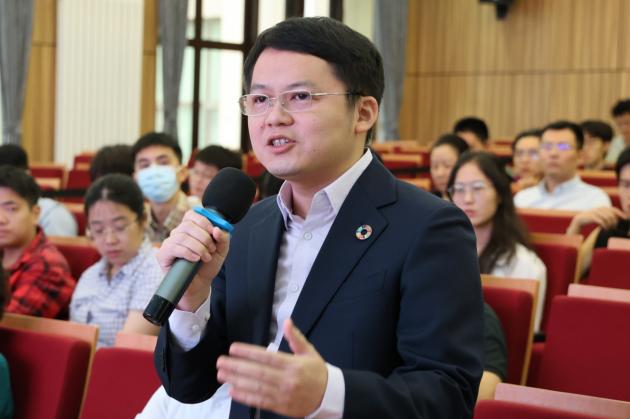
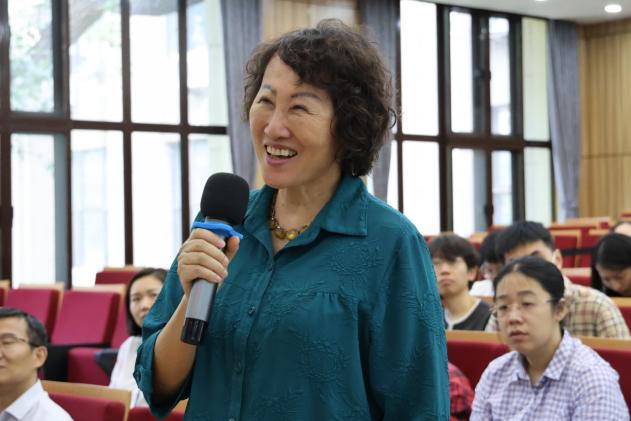
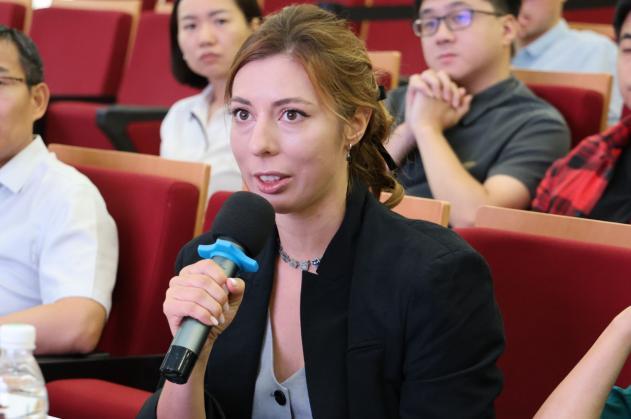
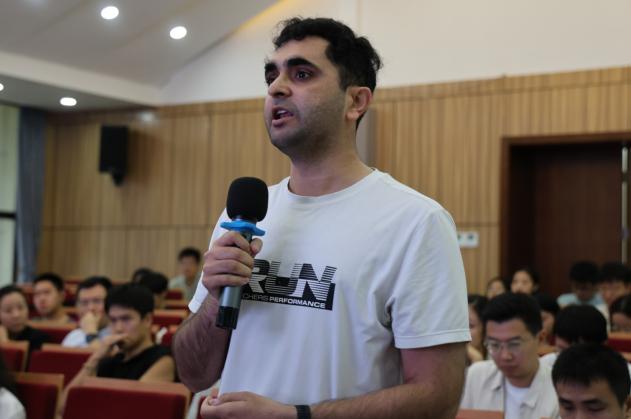
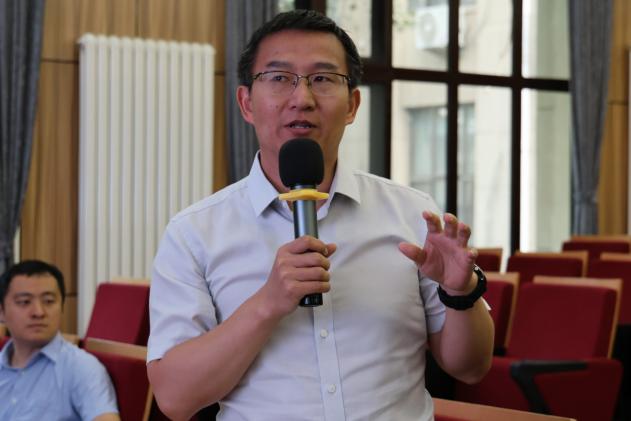
Q&A and Interactive Session
During the interactive Q&A session, many professors and students engaged in lively discussions with Professor Kammen around the report’s themes. Through in-depth dialogue, participants gained a deeper understanding of the research paradigms and key technological pathways for addressing climate change and achieving energy transition, as well as new inspirations for their own academic pursuits.
Introduction to the Jingde Forum
Mr. Gao Jingde was a renowned power engineering expert, distinguished educator, Academician of the Chinese Academy of Sciences, former President of Tsinghua University, founder of the State Key Laboratory of Power Systems and Large-Scale Power Generation Equipment Safety Control and Simulation, and IEEE Fellow.
The Jingde Forum aims to carry forward the fine traditions of EEA, commemorate outstanding predecessors represented by President Gao Jingde, and pass on their spirit of academic rigor and innovation. The invited speakers are influential scholars and experts from China and abroad in the fields of electrical engineering, energy, and higher education. The forum focuses on themes such as frontier scientific and technological advances, major strategic planning, talent cultivation models, and innovation in educational philosophy.
Guest Biography
Professor Daniel Kammen, Fellow of the American Academy of Arts and Sciences and former Science Envoy of the U.S. Department of State, is a globally recognized energy scientist devoted to renewable energy, climate policy, and sustainable development. In 2025, he transferred from the University of California, Berkeley, to Johns Hopkins University as a Bloomberg Distinguished Professor. His pioneering research integrates cutting-edge energy system modeling with practical implementation.

















 News & Events
News & Events